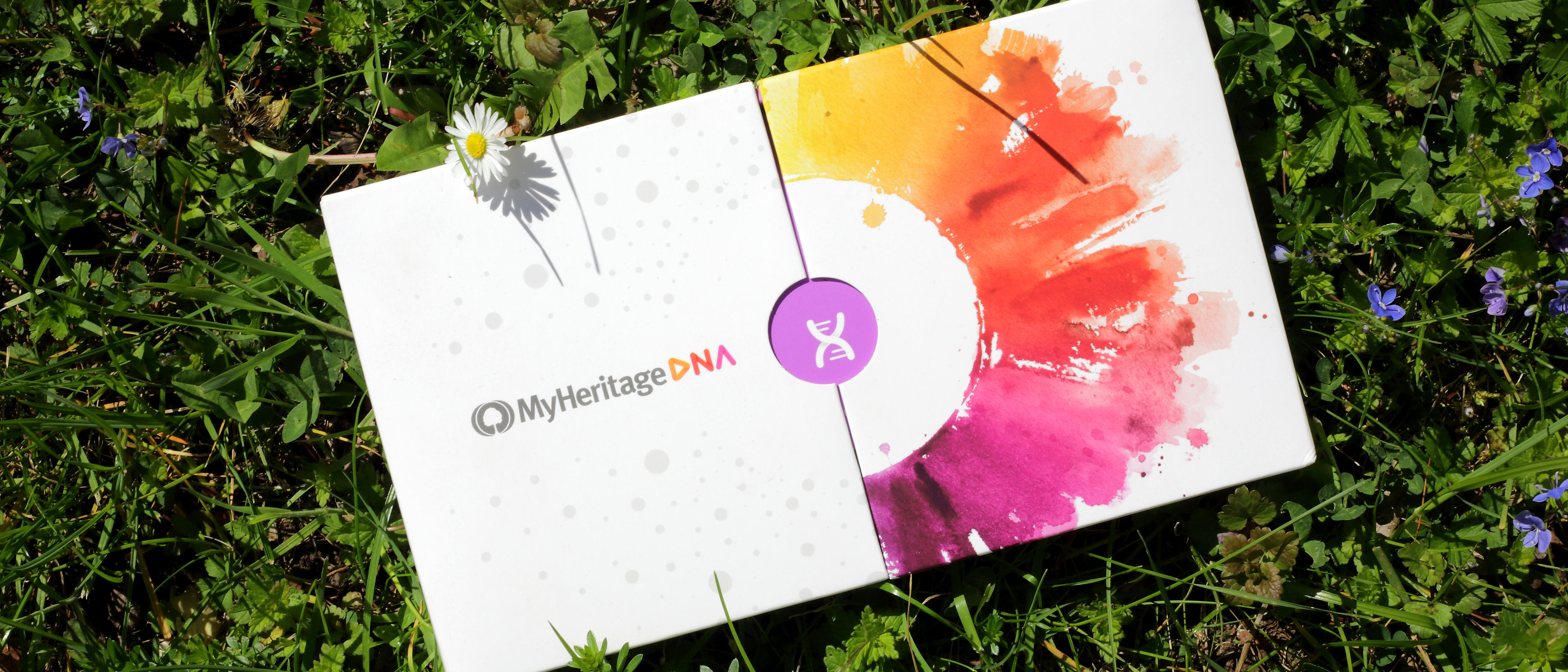TechRadar Verdict
MyHeritage offers two tiers: ancestor tracking and genetic health screening. Neither service is cheap and the process takes a long time, but the results are comprehensive and very well presented. However, we have worries about people getting potentially alarming reports if they don’t have support in place.
Pros
- +
Extensive genetic screening
- +
Good explanation of results
- +
Huge ancestry database
Cons
- -
Expensive
- -
Can be slow
- -
Some tools need subscription
Why you can trust TechRadar
MyHeritage launched its online genealogy platform in the early 2000s, and boasts over 92 million worldwide members. It introduced its DNA service in 2016, and has used the service to help reunite migrant families separated at the US/Mexico border and to help adoptees find their biological parents. It’s one of the three most popular DNA testing firms and is headquartered in Israel.
MyHeritage does not share your DNA data or results with third parties (other than its chosen gene sequencing lab, without which you wouldn’t be able to get any results), but its voluntary informed consent policy does enable it to use aggregated data for scientific research. You can delete your DNA data at any time, and that deletion is permanent.
MyHeritage says it will never sell or licence DNA samples, results or reports to anybody without explicit consent and will not provide the information to insurance companies under any circumstances.
Price and testing types
There are two options here. The standard DNA kit is £75 (about $90 / AU$140) plus shipping, and gives you ethnicity reports and the ability to search for DNA matches in MyHeritage’s massive database, but no health information. MyHeritage normally charges you to contact potential relatives, but it’s free to contact your DNA matches.
The combined Health and Ancestry Kit adds information about your genetic risks and carrier status, and costs £179 (about $220 / AU$330) plus shipping.
Whichever version you go for, some tools still require more money. For example AutoClusters (which enables you to look for shared ancestors) requires a subscription. MyHeritage often offers discounts on its kits, so keep an eye out for special deals.
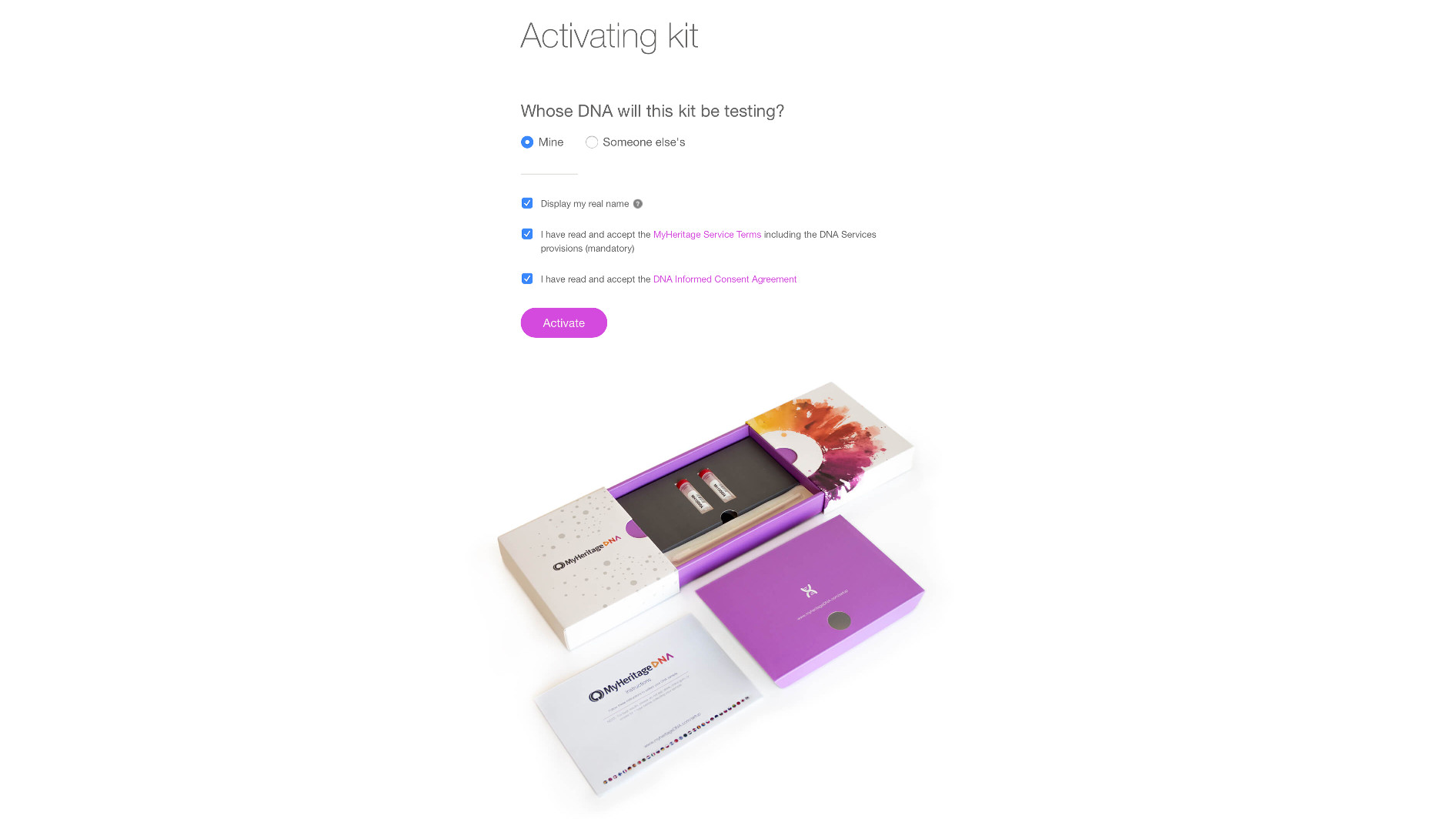
Testing and postage
The MyHeritage DNA kit is simple and nicely packaged, with swabs for your cheeks and containers to put them in. We got ours in early April, registered its unique serial number online so MyHeritage knows it’s from us, sent it off (if you’re in the UK you have to pay the postage) and waited.
At the very end of May we got a notification that there was a problem with our sample: MyHeritage needs to know your birth sex for its DNA processing, but its website registration asks for your gender, which isn’t necessarily the same thing (it isn’t for your reviewer).
We corrected the misunderstanding and our data was ready in early June. We then upgraded to the full genetic health screening for £104 (about $130, AU$). That used the same DNA sample and results were available in August.
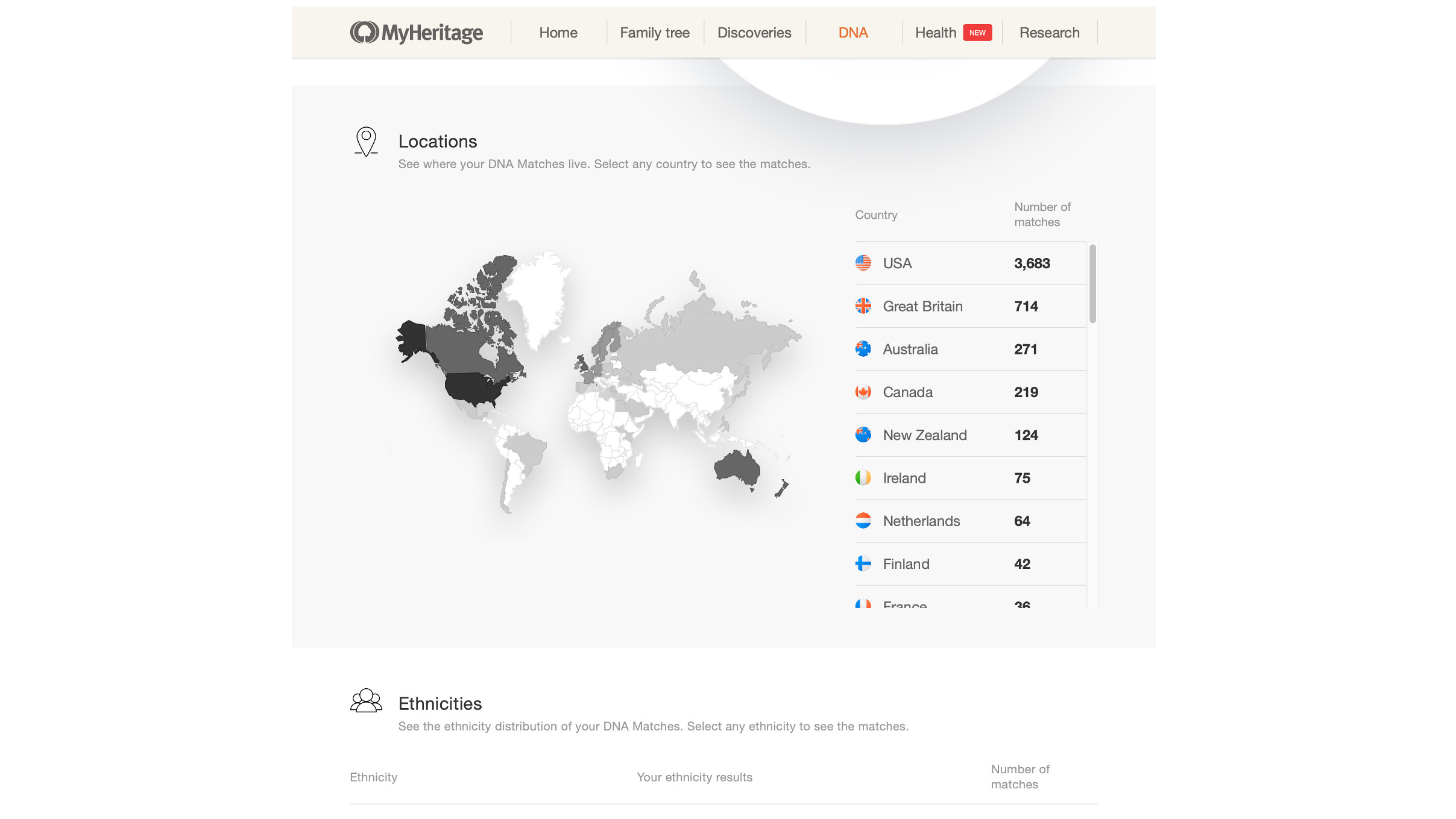
Results and dashboard
MyHeritage gives you four tabs of information when it has processed your DNA. There’s the overview, which as you’d expect gives you a bird’s-eye view of your results; the ethnicity estimate, which tells you where your ancestors most likely came from; your DNA matches, which details the other MyHeritage users you may be related to; and tools.
That last one enables you to compare chromosomes with your DNA matches to help identify common ancestors, and it also includes links to premium DNA visualizations that require an additional subscription.
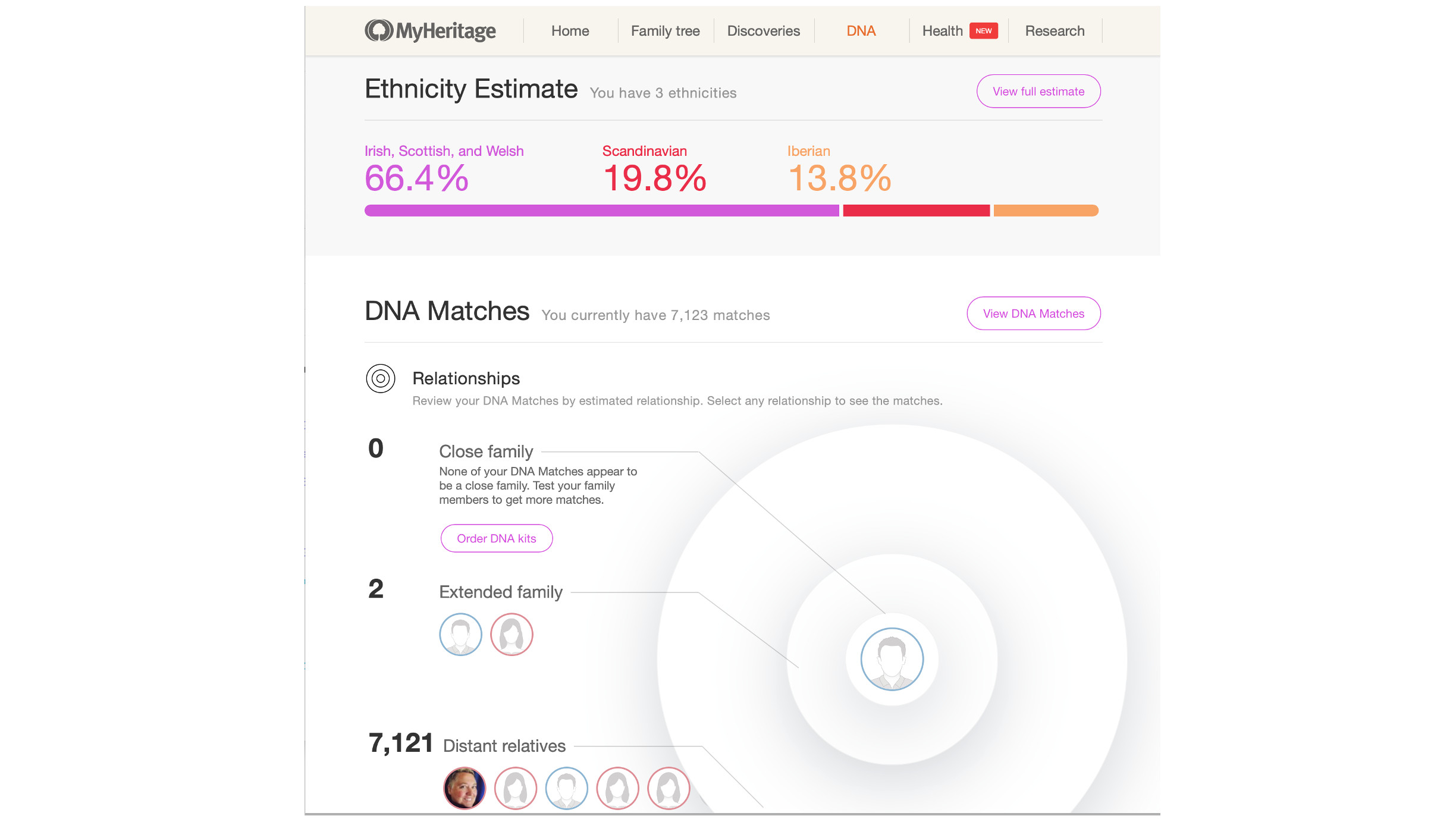
MyHeritage’s health reporting provides information about your genetic risks of conditions such as cancers (especially those linked with BRCA1 and 2, such as breast cancer and ovarian cancer), Crohn’s disease, Alzheimer’s and Parkinson’s. It also analyses your likelihood of being a carrier for genetic conditions that you might pass on to your children. You can opt not to be told about degenerative conditions for which there’s not currently a cure. in the US, the genetic health reports require a physician’s order.
We think it’s important to understand the scope and limits of the information it can provide. Genetic testing doesn’t give you a death sentence or a get out of jail free card: the reports measure risk, not certainty. Just because you’re genetically predisposed to, say, chronic obstructive pulmonary disease (COPD) doesn’t mean you’ll get it, but it does mean that heavy smoking is likely to be even more dangerous for you than for anyone else.
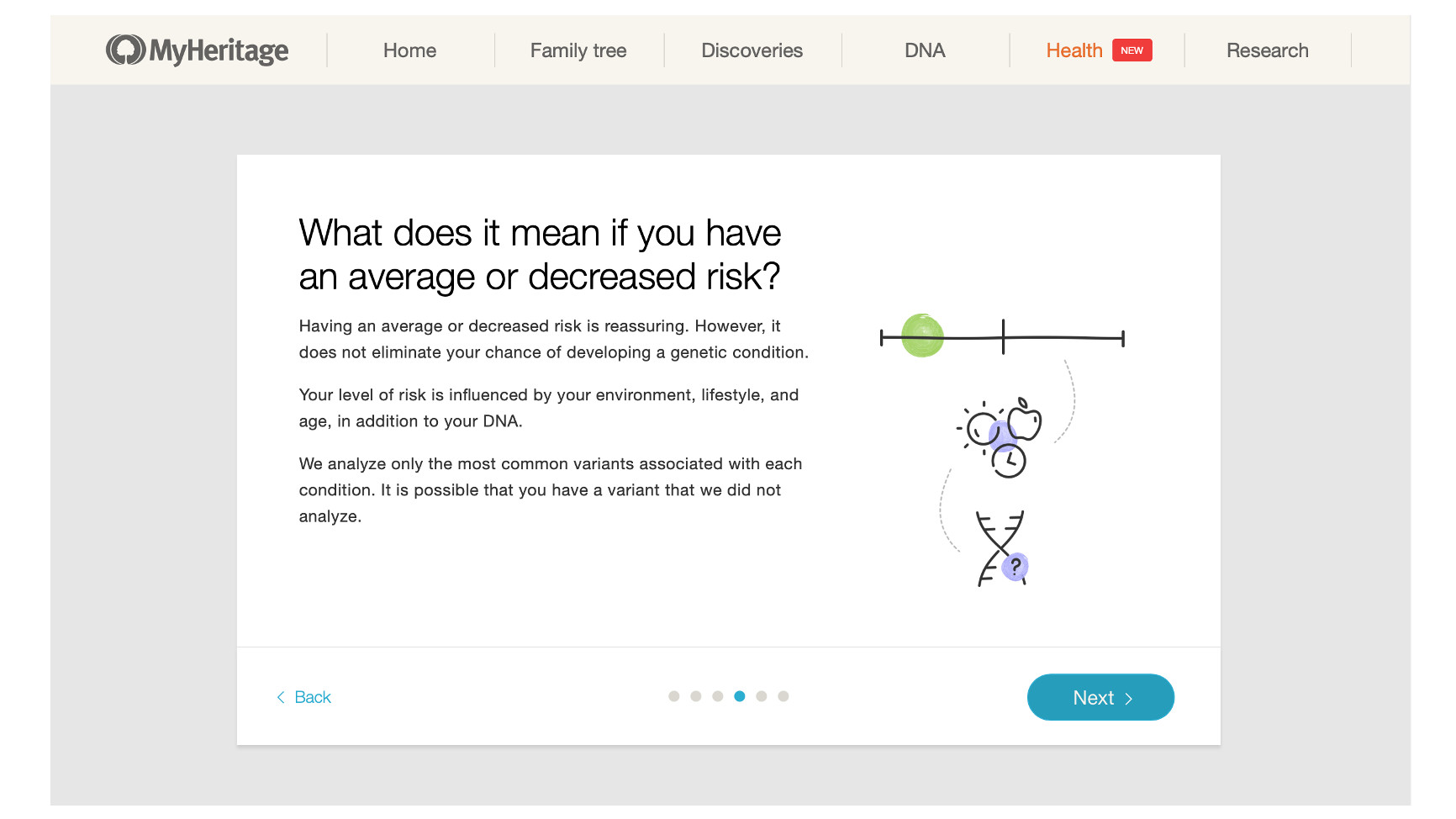
MyHeritage does a good job of putting this information in context, so for example when it screens for risks of lung cancer it rightly points out that smoking is much more of a concern than any genetic marker.
Our results told us that we had slightly elevated risks of liver disease, lung cancer and chronic obstructive pulmonary disease. If we hadn’t given up smoking already that might have been enough to make us quit. Now, we’re just more worried about the damage we’ve already done.
Verdict
MyHeritage’s ancestry screening is effective and interesting – we weren’t surprised to have Viking DNA, but we didn’t know we were part-Spanish too – but it’s of limited interest if you don’t want to trace your family tree.
As a service, MyHeritage is impressive. However, we’re in two minds about the genetic health reports. On the one hand knowledge is power, so for example discovering we were genetically more susceptible to lung cancer might have helped us quit smoking. But what if the news had been really alarming, such as a very high risk of breast cancer? That’s the same news that moved Angelina Jolie to have her breasts removed.
Cancer charities strongly advise against such screening for under-18s and for people who don’t have a family history of cancer. They also don’t recommend that at-risk people undergo genetic screening without having support in place. If there’s a history of cancer in your family we think it’s wise to speak to your GP or healthcare provider before considering genetic screening.
- We've rounded up the best fitness trackers you can buy today
Writer, broadcaster, musician and kitchen gadget obsessive Carrie Marshall has been writing about tech since 1998, contributing sage advice and odd opinions to all kinds of magazines and websites as well as writing more than a dozen books. Her memoir, Carrie Kills A Man, is on sale now and her next book, about pop music, is out in 2025. She is the singer in Glaswegian rock band Unquiet Mind.
